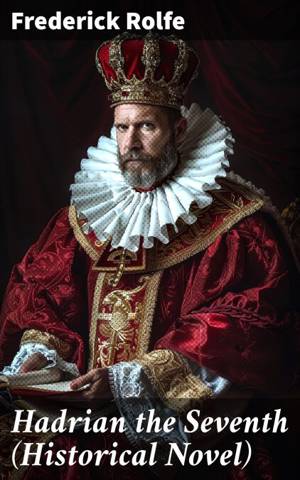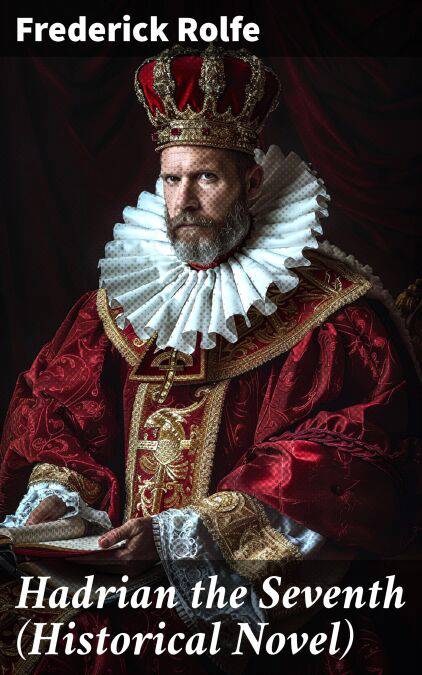
- Afhalen na 1 uur in een winkel met voorraad
- Gratis thuislevering in België vanaf € 30
- Ruim aanbod met 7 miljoen producten
- Afhalen na 1 uur in een winkel met voorraad
- Gratis thuislevering in België vanaf € 30
- Ruim aanbod met 7 miljoen producten
Zoeken
Hadrian the Seventh (Historical Novel) E-BOOK
A Pope of Fiction: Challenging Society and Tradition in a Historical Satirical Tale
Frederick Rolfe
E-book | Engels
€ 1,99
+ 1 punten
Omschrijving
In 'Hadrian the Seventh', Frederick Rolfe weaves a rich tapestry of historical fiction, blending the realms of fantasy and spirituality with the real-world implications of power and the ecclesiastical hierarchy of early 20th-century Europe. The novel follows the improbable ascension of George Arthur Rose, an unconventional Englishman who unexpectedly becomes the Pope. Rolfe's unique literary style fuses vivid imagery with lush, baroque prose, immersing readers in a world steeped in the complexities of faith, ambition, and identity, while also critiquing the disconnection between spirituality and institutional authority. This work stands out as a remarkable examination of the intersection of personal longing and global responsibility, inviting readers to explore the labyrinth of the human soul within a historical framework. Frederick Rolfe, known for his idiosyncratic personality and experiences of isolation from mainstream society, draws upon his own sense of alienation and fascination with the church to craft 'Hadrian the Seventh.' This novel reflects his lifelong struggles with identity and belonging, mirrored in the protagonist's journey. Rolfe's diverse background as a writer, artist, and misunderstood genius deeply informs his ability to blend the sacred and the mundane, offering a heartfelt exploration of a man's desire for significance in a world riddled with contradiction. This compelling narrative is recommended for readers intrigued by historical explorations of ecclesiastical power dynamics and personal transformation. Rolfe's engaging prose not only immerses you in the opulence of the papal court but also elicits profound reflections on the nature of faith, authority, and self-discovery. As relevant today as it was at its publication, 'Hadrian the Seventh' is a must-read for those seeking meaning within the complex landscape of religious and personal identity.
Specificaties
Betrokkenen
- Auteur(s):
- Uitgeverij:
Inhoud
- Aantal bladzijden:
- 329
- Taal:
- Engels
Eigenschappen
- Productcode (EAN):
- 8596547781172
- Verschijningsdatum:
- 16/12/2023
- Uitvoering:
- E-book
- Beveiligd met:
- Digital watermarking
- Formaat:
- ePub

Alleen bij Standaard Boekhandel
+ 1 punten op je klantenkaart van Standaard Boekhandel
Beoordelingen
We publiceren alleen reviews die voldoen aan de voorwaarden voor reviews. Bekijk onze voorwaarden voor reviews.











